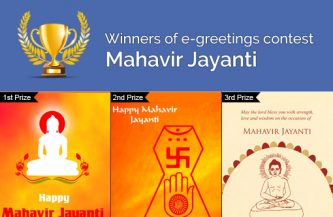Collective Development over Self-Interest: The Global Mantra

The secret to shaping nations’ destinies and human civilization lies in cultural heritage and philosophical traditions. As Prime Minister Narendra Modi noted, “It is in India’s culture to share its knowledge with the world” (Modi, 2021). Culture, conveying ideas, symbols, and ways of life, profoundly impacts national destinies and international order (UNESCO, 2009). Amid global challenges, cultural resources are crucial in developing strategies and asserting moral leadership. India, with its rich heritage, can leverage its cultural soft power to champion Global South interests and carve a leadership role globally.
India’s unique position as a rising global power stems from its rich cultural heritage influencing strategic culture and foreign policy, as highlighted by scholars like Boesche (2003). However, the Global South faces a tension between cultural globalization and the developed world’s “good policies” and “good institutions” (Chang, 2002; Williamson, 1990). Such universal models often overlook diverse cultural identities and local aspirations (Nederveen Pieterse, 2019). Rodrik (2006) argues for development models considering unique cultural contexts.
The international landscape poses challenges with some foreign actors exploiting developing countries’ vulnerabilities for political and economic gain, often under the guise of aid (Cooley & Ron, 2002; Easterly, 2006; Moyo, 2009). For instance, Western aid to Africa has been criticized for perpetuating dependency and undermining genuine development (Moyo, 2009). India, vigilant against misuse of its development cooperation, promotes transparency, accountability, and respect for national sovereignty to ensure genuine benefits (Chaturvedi, 2012).
India’s cultural influence can shape the Global South’s destiny and enhance India’s 21st-century role. By leveraging cultural resources, India provides moral leadership, fosters South-South cooperation, and promotes equitable global order (Modi, 2021; UNESCO, 2009). Cultural soft power, harnessed through collaboration, can amplify developing world voices for a more equitable order (Fukuyama, 1995; Huntington, 1996). Understanding the nexus between culture, development, and global power dynamics is crucial for navigating an increasingly complex world (Boesche, 2003; Vivekananda, 1907).
India’s cultural influence emphasizes collective welfare over self-interest, as reflected in “One should sacrifice the individual for the sake of the family, the family for the sake of the village, the village for the sake of the country, and the country for the sake of the self” (Mahabharata, 5.17.32). This ethos shapes India’s domestic and international policies, exemplified by its COVID-19 vaccine diplomacy, prioritizing global community welfare over narrow self-interest (Andersen et al., 2021). Despite challenges during the pandemic, India resumed vaccine exports, demonstrating a commitment to equitable global access (Mashal & Yee, 2021).
The ancient treatise Arthashastra persistently influences India’s strategic culture, reflecting the integration of cultural factors and state power (Boesche, 2003). Initiatives like the International Solar Alliance (ISA) and sharing technological innovations like UPI exemplify India’s approach to global governance and development cooperation (ISA, 2022; Chaturvedi & Saha, 2021). This stands in contrast to Western “digital colonialism,” promoting a more equitable and democratized digital future (Kwet, 2019).
India’s family-centric social structure serves as an invaluable economic and social institution, reducing government welfare burdens. In contrast to Western welfare models, India’s family system emphasizes collective responsibility and community resilience (Vivekananda, 1907). This allows the government to focus on other developmental priorities (Kendra & Gurumurthy, 2014).
As India leverages its cultural strengths, it must address internal challenges to ensure inclusive, equitable development. Cultural soft power, when harnessed strategically, can foster moral leadership and global influence. By championing the Global South’s concerns, India promotes a more equitable international order, embracing diversity and preserving cultural identities amid globalization pressures. This vision aligns with “Vasudhaiva Kutumbakam”—the world is one family, fostering a just, sustainable, and prosperous future for all.
The writer is Shyam Parande,, Global Coordinator for Sewa International





